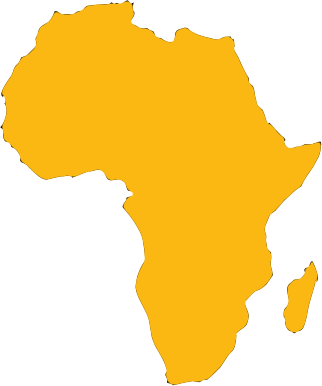Blade Nzimande Speaks on NSFAS State of Readiness
By Blade Nzimande
I am grateful that I join the National Student Financial Aid Scheme Board chairperson, Mr Ernest Khosa and CEO, Mr Andile Nongogo on the occasion of their media briefing to announce the NSFAS state of readiness for the academic year 2023.
This briefing follows my promise that NSFAS will provide more details on some of the issues that I touched on during our overall state of the PSET sector readiness for the academic year.
Today, I will only pronounce on some of the policy issues on NSFASm especially on the issue relating to student 2023 allowances.
Ladies and gentlemen
Just a year after its establishment in 1993, 83 251 students were receiving NSFAS support of approximately R437 million. In this current financial year (2023) the NSFAS budget is projected to be R47 billion to fund an estimated number 900 000 NSFAS beneficiaries.
In the current financial year, NSFAS is projecting a 7% increase in the number of students qualifying for NSFAS bursaries as compared to the 2022 financial year.
Out of these qualifying students, over 60% of undergraduate students in our public university system receive support from NSFAS and well over 90% of students in TVET colleges.
Indeed, through government continued investment in NSFAS, we will ensure that we defend the important role of NSFAS in expanding access for the dependents of the working class and the poor.
On confirmation of the 2023 academic year allowances
An inflated linked increase of 5% on all allowances, other than the living allowance, has been effected for our universities.
Let me indicate that we have arrived at these final allowances following extensive consultations with key role players.
I am therefore delighted to announce our 2023 student allowances for both university and TVET students as follows:
University students’ allowances
· University managed and catered students will receive a R5,460 learning materials allowance and an accommodation allowance capped at R61,500. This are instances where the universities provides accommodation and catering.
· University managed self-catering students will receive a learning materials allowance to the value of R5,460, R16,500 per annum living allowance and accommodation allowance capped at R45,000. Let me indicate that our living allowance increment across the board will be R1650 per month, which is 10% increment as compared to the 2022 figure. This increase is above inflation taking into account that for the three years there has been no increase.
· Living with relatives (not in private accommodation) students will receive a learning materials allowance of R5,460, and R16,500 per annum living allowance.
· Private off campus accredited accommodation students will receive a learning materials allowance of R5,460, R16,500 per annum living allowance and an accommodation allowance capped at R45,000.
TVET students allowances
· TVET College own catered residence will only receive an accommodation allowance to the value of R54,045 per annum
· TVET College managed own and leased self-catered accommodation will for the first time receive a living allowance of R6000, personal care allowance of R3,045 and a Maximum R45,000 plus living allowance paid to TVET College.
· TVET students in private accommodation will receive a R6000 living allowance, R3,045 personal care allowance and R45,000 per annum accommodation allowance.
· TVET students residing less than 10 km from the College (this means from 0 km and beyond but up to 9.9 km), will receive a R6000 living allowance, R3,045 personal care allowance and R7,718 travel allowance.
All these allowances are in line with the 2023 NSFAS Eligibility criteria and conditions for financial aid already published and shared with institutions (apart from the living allowance increase mentioned above).
The figures provided above illustrate just how important the financial aid provisions from the State distributed through NSFAS have been over the years.
The inspiration for our commitment as a government are drawn directly from the Freedom Charter, grounded in the Constitution of our country, and highlighted in the vision of our post-apartheid education policy.
This includes a commitment to expand access to further and higher education, with a recognition that the State has a responsibility, through reasonable measures to make higher education progressively available and accessible.
Whilst we should acknowledge that limited infrastructure – classes, residences, equipment – still prevent full expansion of the system’s total growth requirements, our institutions must continue to prioritize access policies foregrounding learners from disadvantaged backgrounds to ensure that opportunities are not denied on their basis of their economic and social circumstances.
Lastly, let me once more make a call to all our institutions to allow all NSFAS funded students to register without paying an upfront registration fee, whilst NSFAS is finalising its upfront payment schedule for payment.
It is also important for unsuccessful applicants to note that they have the opportunity to appeal such NSFAS decisions by submitting relevant supporting documents between the 20th of January and the 20th of February 2023.
In conclusion, our commitment as a democratic government to transforming our post-school education system and ensuring that no student is excluded from access has yielded huge results.
It is not an option for our post-school education and training system to remain the preserve of only those who can afford to pay. In a deeply unequal society like that of South Africa, something significant needed to be done.
We urge all our beneficiaries to make use of this opportunity and focus on their studies. We wish all our students in the entire PSET sector a successful 2023 academic year!
Issued by the Department of Higher Education, Science and Innovation
Article Tags
 Africa
Africa Education
Education Joburg
Joburg South Africa
South Africa Greatest Africans
Greatest Africans Africa
Africa Education
Education Joburg
Joburg South Africa
South Africa Greatest Africans
Greatest Africans